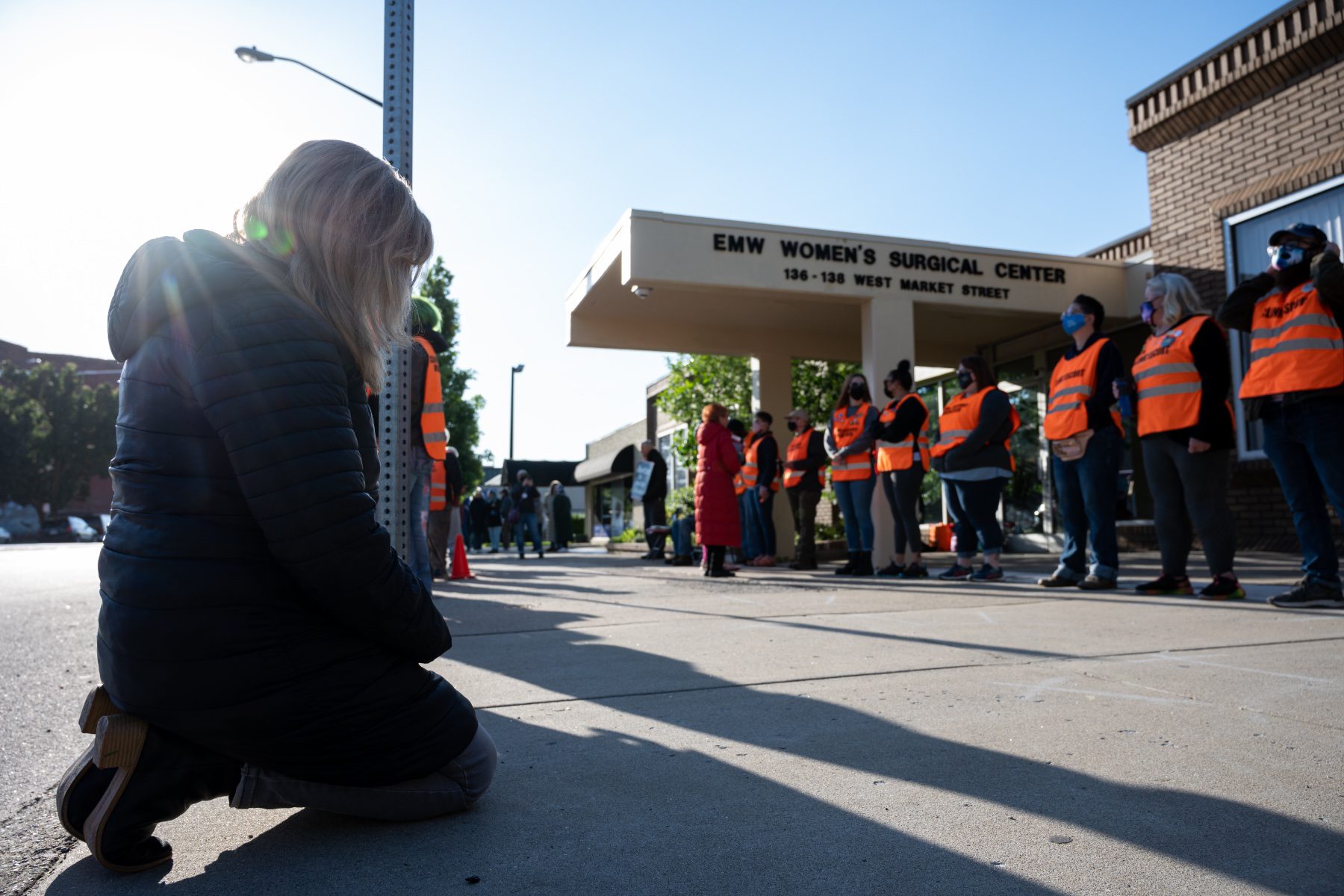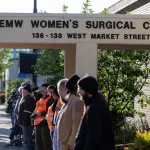Kentucky is the first state where clinics will completely stop providing abortions. The state legislature enacted a far-reaching abortion law Wednesday with so many restrictions, including a 15-week ban, that clinics said they have been forced to stop performing the procedure. The law, known as House Bill 3, takes effect immediately.
The state’s two abortion clinics, Planned Parenthood and EMW Women’s Surgical Center, will be filing lawsuits in the U.S. District Court for the Western District of Kentucky. But unless the law is blocked, neither health center will provide abortions, clinic lawyers said. It is not clear if or when the court will respond to the legal challenge.
“There’s nothing in place for providers to be able to comply [with HB 3’s regulations],” said Nicole Erwin, a Kentucky-based spokesperson for Planned Parenthood Alliance Advocates. “That’s why we would stop providing care. Literally we can’t meet the demands this bill would require.”
It is not clear how the state’s hospitals — which provide a tiny fraction of Kentucky’s abortions — will be affected by the new law.
Beyond the 15-week ban on abortion, under HB 3, the law institutes new regulations for patients who have abortions, including requirements that many patients with abortions file “birth-death certificates.” Physicians who perform abortions also have to report each procedure to the state, along with the method of abortion and substantial biographical detail about both the person who received the abortion and their sexual partner, including their age, race, ethnicity, hometown and health information.
-
More abortion coverage from The 19th
- Oklahoma just passed a near-total abortion ban. More restrictions are likely coming.
- Supreme Court’s upcoming abortion ruling will spark a new round of questions about legality and access
- Medication abortions — the most common method of ending a pregnancy — are growing significantly more expensive
HB 3 also enhances the state’s power to audit abortion providers, create a state website that publishes the names of all physicians who provide abortions in Kentucky, bans telemedicine for medication abortion, further restricts the circumstances under which minors can get abortions. There are no exceptions for rape or incest.
Providers say that the state systems are not in place to be able to comply with these measures, which will prevent them from offering abortion services.
A portion of the omnibus bill requiring remains from abortions to be processed through funeral homes was removed at the last minute. But the paperwork that clinicians and patients have to fill out to work with the funeral homes does not yet exist, and the forms are expected to require patient biographical information that could ultimately identify who received the abortion, breaching patient privacy and potentially resulting in harassment against those who end a pregnancy. Clinics say that the funeral home regulation in particular would make it impossible to continue providing abortions.
HB 3 was vetoed last week by Gov. Andy Beshear, a Democrat. But the legislature, which has a Republican supermajority, overrode the veto 31-6 during its reconvened session Wednesday evening. To override a veto, the bill must once again receive favorable votes from a majority in both legislative chambers. The House voted 68-21 to override the governor’s veto.
The clinics’ attorneys are arguing that the new law violates protections established in Roe v. Wade, the 1973 case that established the right to an abortion. But that precedent could be overturned this summer in a highly anticipated ruling in Dobbs v. Jackson Women’s Health Organization.
Lawyers are also arguing that requiring abortion facilities to immediately comply with the new regulations — including filling out paperwork for fetal remains processing, even though the paperwork doesn’t yet appear to exist — violates constitutional due process protections. Violation of certain HB 3 provisions can result in civil penalties on abortion providers, felony charges or loss of licensure, depending on which provision has been violated.
“The law is quite clear that the government cannot require action with such consequences without giving people the means to comply,” said Carrie Flaxman, an attorney with the Planned Parenthood Federation of America.
About 4,100 abortions were performed in Kentucky in 2020, the most recent year for which state data is available. The vast majority of abortions in Kentucky — 3,724 — were performed at EMW, which is based in Louisville. Another 368 were performed at the state’s Planned Parenthood, which is also in Louisville. Thirteen more abortions were performed in hospitals.
It’s not clear if or when the federal courts might respond to the two lawsuits. That means that there is no timeline for when abortions may resume in Kentucky.
In the meanwhile, Planned Parenthood and EMW are currently working with clinics beyond Kentucky to direct patients out of state for care. The next closest clinics for most patients are in Indiana, though some residents could also travel to Ohio or Tennessee.
“We don’t have a clear sense of [timing],” said Heather Gatnarek, an attorney with the ACLU of Kentucky, which is representing EMW. “We all hope that the court will grant injunctive relief quickly, so that our clients can resume providing abortions to patients who need it in Kentucky.”







